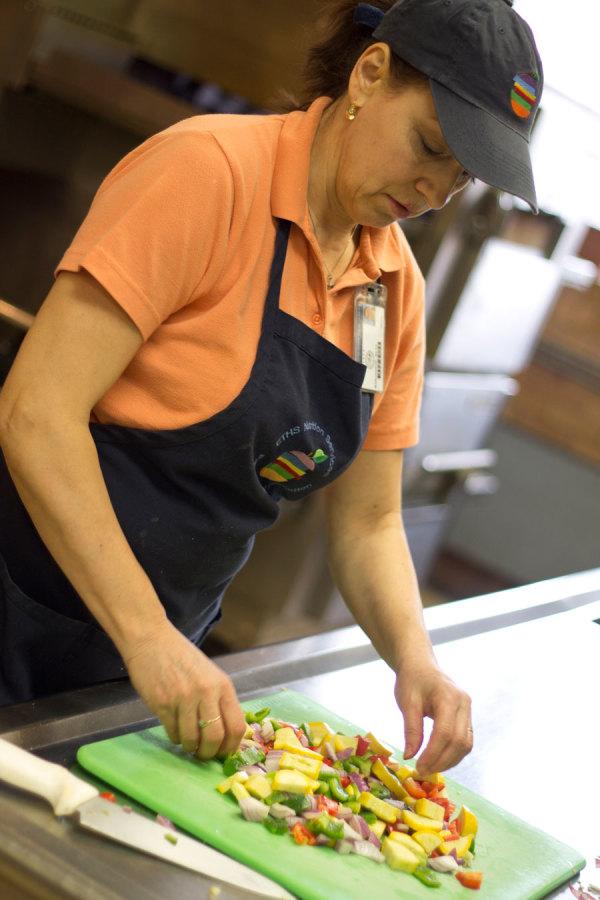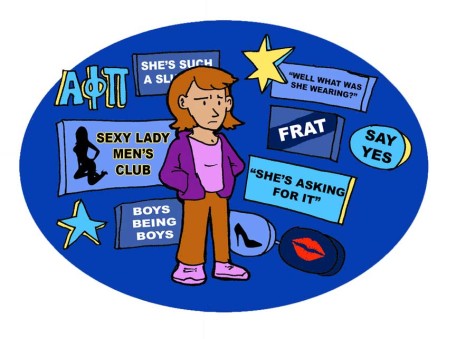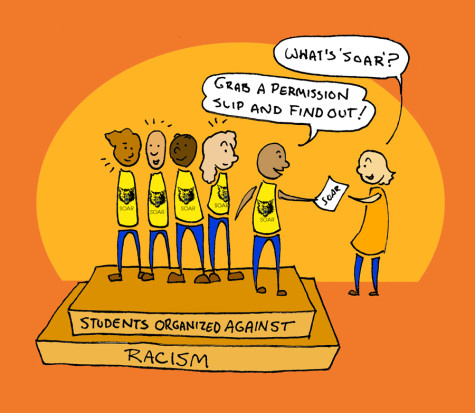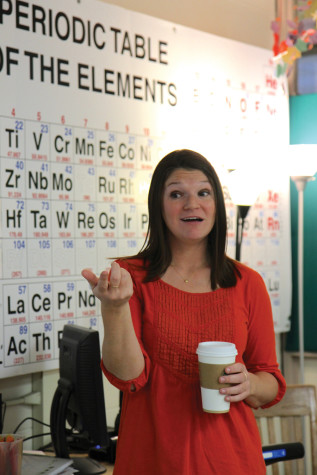Food is changing, habits are not
You might be eating cafeteria food for a different reason than you think. Though 42 percent of students at ETHS eat at the cafeteria, the food doesn’t have a great reputation. But though cafeteria food at ETHS is changing for the better, quality may not the deciding factor of whether students will eat it.
“There’s a stereotype the cafeteria food is kinda meh,” says Paolo Maloles, junior. “But I haven’t really had cafeteria food since the 7th grade.” Interestingly enough, the ETHS cafeterias have dramatically changed their menus in the last five years, including the food they provide for District 65 schools.
The cafeterias have sought to provide healthier options. “There used to not be maximums of calories you have to meet for breakfast and for lunch, [but now] you can’t just throw any willy nilly thing out there and have it be over the top in calories and fat,” says Kim Minestra, nutritional director. “Everything is whole grain now, even the rice crispies. Anything that competes with lunch or breakfast [such as] packaged snacks or chips must be 200 calories or less.”
The nutrition department is adjusting to personal preferences as well. “The things we are serving kids are liking it things they didn’t we took off and changed.”
“[I eat our cafeteria food] every day. I love our enchiladas. I like flank steak tacos our lasagnas are really good,” says Minestra.
Though there may be favorite dishes, some students prefer to eat food from home simply out of convenience. “My lunch time is fairly unconventional… I prefer the stuff that I know I bought and made. Plus I hate going to the cafe and all.” says Carly Korleski, junior.
Others simply dine at ETHS for practical purposes. “I eat what’s in the cafeteria because that’s my only option realistically. I don’t have time to make my own lunch and everything else is expensive,” says Tom Davies, junior. “Also it is easy, I would love if it was higher quality but it’s food so I eat it.”
And while the quality of the food may not be students’ first priority, the nutrition department is still willing to change the menu to suit student preferences.
“I would love more feedback from students, it’s difficult to get constructive criticism… you’re the ones eating the food, you’re the customer, I want to hear about your ideas.” says Minestra.
The ETHS cafeteria is a food source for students that maintains a reasonable philosophy.
“I feel like [my food philosophy is] everything in moderation… You always want what you can’t have… if you completely take out chocolate you’re going to want to eat more of it, same with everything that’s somewhat ‘bad’ for you. I don’t think there are any bad foods, it’s just the amount you eat that you need to watch.”
While cafeteria food might be changing, the conventional routine of the student is not. Cafeteria food consumption is based on student lives outside their lunch period than personal preferences towards foods.
Your donation will support the student journalists of the Evanstonian. We are planning a big trip to the Journalism Educators Association conference in Philadelphia in November 2023, and any support will go towards making that trip a reality. Contributions will appear as a charge from SNOSite. Donations are NOT tax-deductible.







